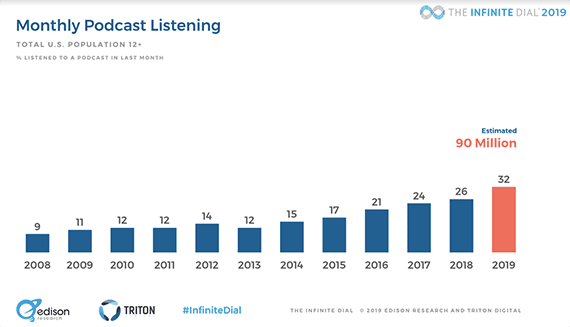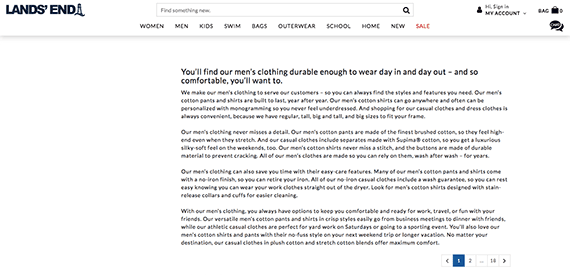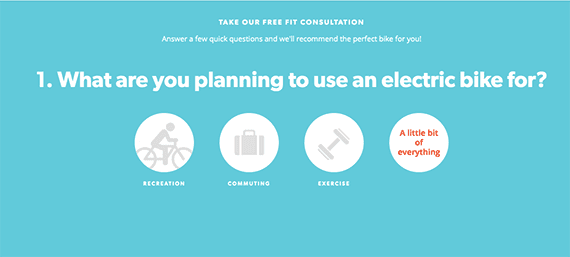Content marketing requires a steady stream of material, such as guides, articles, and podcasts. Often this material is the result of dozens of ideas.
For September 2019, your business might choose to write about procrastination. Or it could publish a useful guide, or it might even start a podcast.
Content marketing is the act of creating, publishing, and promoting content to attract, engaging, and retaining customers for your business. Perhaps some of the ideas below will help.
1. Fight Procrastination Day: Sept. 6

Articles about being productive and fighting procrastination will resonate with many readers. Photo: John Schnobrich.
The origin of Fight Procrastination Day is unclear. Perhaps its creator has not yet gotten around to telling us. Regardless, this pseudo-holiday has been celebrated on September 6 since at least 2008.
The day’s premise is simple: Don’t put off important tasks or projects.
For your ecommerce company’s September 2019 content marketing, consider producing an article, video, or podcast episode about how your customers can fight procrastination and improve productivity.
2. Publish a Guide
Business-to-consumer ecommerce companies should consider taking a chapter out of the B2B content marketing playbook and publish a guide or ebook.
B2B companies use guides, reports, surveys, and ebooks for lead generation. Potential customers offer up their contact information in exchange for a valuable bit of content.
This can work well in the B2C environment too. As with most content marketing, your goal should be to stay close to your brand and product niche, but you can still explore related topics.
The editorial section of the Mr. Porter site, as an example, often includes articles about vacationing, fine dining, friendship, and work — all are relevant to shoppers interested in purchasing fine clothing.

It is possible to cover a variety of topics related to your customers’ interest. This is what the editorial section on the Mr. Porter website does.
A similar men’s clothing store could publish a guide outlining how to find a better paying job. This guidebook might cover modern resume writing, interviewing skills, and what to wear at a face-to-face meeting. The authors might even take the time to interview human-resource executives to get their perspectives because the guide needs to provide real value.
3. Launch a Podcast
Audio podcasts are an excellent way to connect with your company’s customers and prospects. Done well, podcasts provide useful, informative, and entertaining content that folks will want to listen to.
There are a few reasons to start a podcast for your ecommerce business.
- Podcasts are increasingly mainstream. Some seven in every ten Americans age 12 and older are familiar with podcasts. Around 144 million of them have listened to a podcast. And about 32 percent of Americans in that same age range listened to a podcast in the last month, according to “The Infinite Dial 2019” report from Edison Research and Triton Digital.
These statistics show significant growth from 2018, with some 90 million Americans now listening to a podcast at least monthly.

Podcasts are popular and growing. Roughly 32 million American’s over age 12 will listen to a podcast in 2019, up from 26 million in 2018. Source: Edison Research.
- The number of podcast platforms is growing. Years ago it was enough to publish on iTunes. But now there are several podcasting platforms, including Pandora. These platforms could drive podcasting growth even further.
- Smart speakers are on the rise. In the United States, 23 percent of folks age 12 and older (around 65 million people) own a smart speaker such as Amazon Alexa or Google Home, according to Edition Research and Triton Digital. These devices give potential podcast listeners easy access to programming.
- Summer’s end. As summer ends and autumn begins, your audience of potential customers may be looking for new forms of entertainment or information, such as your new podcast.
Stay close to your business. If your ecommerce store sells hats, start the best possible podcast about hats.
4. Batman Day: Sept. 21
Batman Day is a made-up holiday almost certainly meant to help DC Comics and its licensees boost sales of the caped crusader’s comics, movies, and merchandise. This year, Batman Day is special: It’s been 80 years since the character made his comic book debut.

Batman Day is coming. Consider including the Dark Knight in your company’s content. Batman was inducted into the Comic-Con Character Hall of Fame in July 2019.
Several websites place Batman Day on September 21 in 2019. But various other fan groups and websites offer alternative days, including September 15, 17, and 26. Perhaps you can make it Batman week.
While you want to avoid copyright and trademark confrontations, you can still reference the Dark Knight in your content marketing as you focus on editorial topics.
For example, an online fishing supply store might write an article or publish a podcast titled “Fishing Gear That Would Make Batman Jealous,” and an online auto part store could write a round-up article about the various Batmobiles.
As with all content marketing, ensure that your content also makes sense for the products your business sells and the customers it serves.
5. Guided Selling
This content marketing idea is the marriage of two concepts.
First, ecommerce sites sometimes include lengthy articles at or near the bottom of product category pages.
This text, which is often displayed in tiny font, is meant for search engine crawlers. But recently, a Google webmaster trends analyst indicated this copy could be muddying the waters, so to speak, by making it more difficult for Google’s algorithms to discern the category page’s purpose.

Often ecommerce sites, such as Lands’ End, put long articles at the bottom of a product category page.
This is unfortunate because some of the tiny content is pretty good.
Second, what if this copy could be combined with the idea of guided selling?

Guided selling walks shoppers through several questions or steps to lead them to a product. Each of those steps could include content that was both helpful to shoppers and available to search engines.
In ecommerce, guided selling usually asks consumers about preference or use. These questions are meant to guide shoppers to the best product for their needs.
In September 2019, try to take some of the copy that could otherwise be below the fold on a product category page and use it to create a guided selling experience.